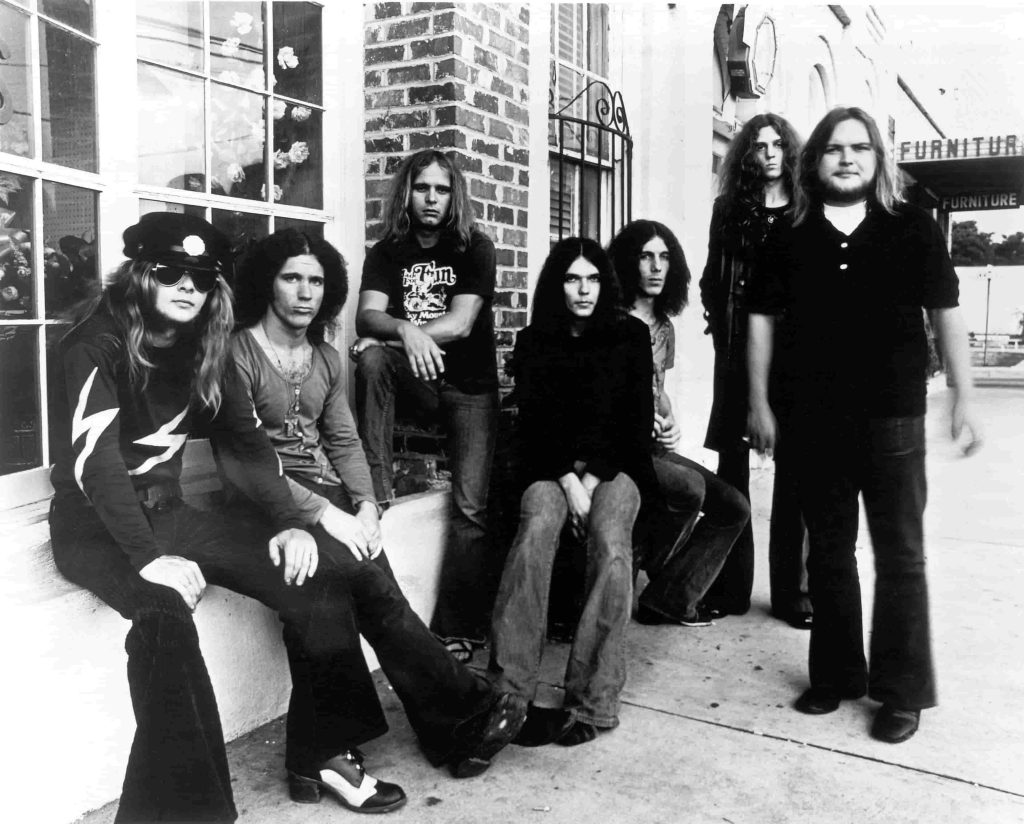
“Free Bird” – A Rock Anthem by Lynyrd Skynyrd
“Free Bird”, originally released in 1973 on their debut album Pronounced ‘Lĕh-‘nérd ‘Skin-‘nérd, isn’t just a song; it’s a cultural touchstone, a piece of American rock history. It’s the kind of song that, when it comes on the radio, you instinctively turn the volume up, lost in its soaring guitar solos and Ronnie Van Zant’s soulful vocals. It quickly climbed the Billboard charts, reaching number 19, an impressive feat for a debut single, and solidifying Lynyrd Skynyrd‘s place in the burgeoning Southern rock scene.
The genesis of “Free Bird” is a story interwoven with loss and inspiration. The initial melody, a haunting chord progression, was conceived by guitarist Allen Collins. Legend has it that Duane Allman of The Allman Brothers Band encouraged Collins to develop it, shortly before Allman’s tragic death. This tragic event added a layer of poignant meaning to the song. The lyrics, penned by Van Zant, explore the complexities of love and freedom, the push and pull between commitment and the innate desire for independence. The lyrics paint a vivid picture of a man torn between love and the call of the open road. There’s a sense of inevitability, a feeling that this “bird” simply cannot be caged.
The song’s structure is iconic. It begins as a gentle ballad, with Van Zant’s vocals carrying the weight of the lyrics. It builds gradually, layer by layer, with Billy Powell’s piano adding a touch of elegance. And then, it explodes. The final minutes are a guitar-driven tour de force, featuring a legendary extended solo, initially performed by Allen Collins, that became a hallmark of Lynyrd Skynyrd’s live performances. It’s a cathartic release, a musical representation of the freedom the lyrics speak of. It felt like a moment of pure rock ‘n’ roll energy.
“Free Bird” is more than just its impressive guitar work; it speaks to a universal longing. It’s about the desire for independence, the need to forge one’s own path, even when it means leaving loved ones behind. It’s a sentiment that resonated deeply with audiences in the 70s and continues to resonate today. For many, particularly those who came of age during that era, it evokes a sense of nostalgia for a time when rock music felt raw, authentic, and deeply connected to the human experience. The song, in a strange way, is like a time capsule, taking older listeners back to their youth, to simpler times when music was the soundtrack to life.
The song is a tribute to Duane Allman, and also to the idea of being free. As the last song Lynyrd Skynyrd played with their original lineup before the tragic plane crash in 1977 that took the lives of Van Zant, Steve Gaines, and Cassie Gaines, the song took on an entirely new dimension. It became their eulogy, as well as a song about the spirit of the band that could never be held down. The band’s perseverance, against all odds, made the song even more legendary. This history has solidified the song’s place in rock and roll history.
This isn’t just a song; it’s an experience, a journey. It’s a reminder of a time when rock music could be both tender and ferocious, introspective and anthemic. It is something deeply rooted in the heart of music lovers throughout generations. For many, especially those of us who’ve lived a few decades, listening to “Free Bird” feels a bit like coming home.